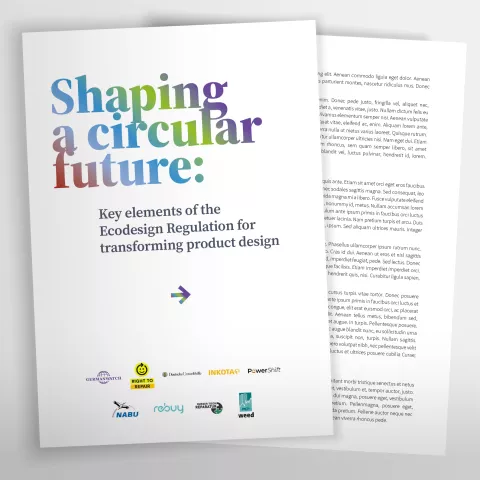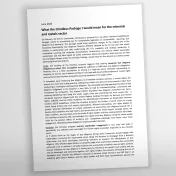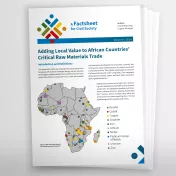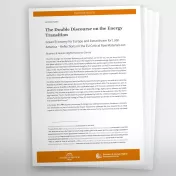
Design plays a crucial role in determining the circularity of a product, including factors such as repairability, recyclability, or the potential for refurbishment and remanufacturing. The Ecodesign for Sustainable Product Regulation (ESPR) establishes a new framework for setting ecodesign requirements for products and is therefore crucial to enable a circular economy. At present, the EU Commission, the Council and the European Parliament are negotiating the ESPR in the so-called trilogue. In this policy brief, we highlight five key issues that need to be considered to make the final version of the Regulation as effective as possible and to promote more durable and circular products.
These issues can be summarised as the following:
- Closing loopholes to ensure that effective ecodesign requirements apply to all relevant products;
- Ensuring that design requirements for the most relevant product groups such as electronic and electric equipment are implemented quickly and effectively;
- Establishing strong regulations on the destruction of unsold goods;
- Ensuring that all relevant actors have access to the information needed for a circular economy; and
- Exploiting the potential of the Regulation to reduce the need for (critical) raw materials.





